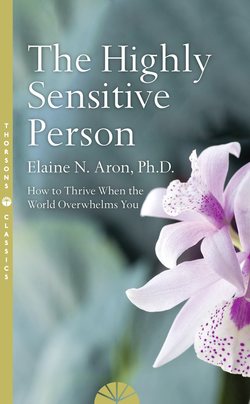Читать книгу The Highly Sensitive Person - Elaine N. Aron - Страница 25
How to Think About Your Differences
ОглавлениеI hope that by now you are seeing your trait in positive terms. But I really suggest trying to view it as neutral. It becomes an advantage or disadvantage only when you enter a particular situation. Since the trait exists in all higher animals, it must have value in many circumstances. My hunch is that it survives in a certain percentage of all higher animals because it is useful to have at least a few around who are always watching for subtle signs. Fifteen to 20 percent seems about the right proportion to have always on the alert for danger, new foods, the needs of the young and sick, and the habits of other animals.
Of course, it is also good to have quite a few in a group who are not so alert to all the dangers and consequences of every action. They will rush out without a whole lot of thought to explore every new thing or fight for the group or territory. Every society needs both. And maybe there is a need for more of the less sensitive because more of them tend to get killed! This is all speculation, of course.
Another hunch of mine, however, is that the human race benefits more from HSPs than do other species. HSPs do more of that which makes humans different from other animals: We imagine possibilities. We humans, and HSPs especially, are acutely aware of the past and future. On top of that, if necessity is the mother of invention, HSPs must spend far more time trying to invent solutions to human problems just because they are more sensitive to hunger, cold, insecurity, exhaustion, and illness.
Sometimes people with our trait are said to be less happy or less capable of happiness. Of course, we can seem unhappy and moody, at least to non-HSPs, because we spend so much time thinking about things like the meaning of life and death and how complicated everything is—not black-and-white thoughts at all. Since most non-HSPs do not seem to enjoy thinking about such things, they assume we must be unhappy doing all that pondering. And we certainly don’t get any happier having them tell us we are unhappy (by their definition of happy) and that we are a problem for them because we seem unhappy. All those accusations could make anyone unhappy.
The point is best made by Aristotle, who supposedly asked, “Would you rather be a happy pig or an unhappy human?” HSPs prefer the good feeling of being very conscious, very human, even if what we are conscious of is not always cause for rejoicing.
The point, however, is not that non-HSPs are pigs! I know someone is going to say I am trying to make an elite out of us. But that would last about five minutes with most HSPs, who would soon feel guilty for feeling superior. I’m just out to encourage us enough to make more of us feel like equals.
